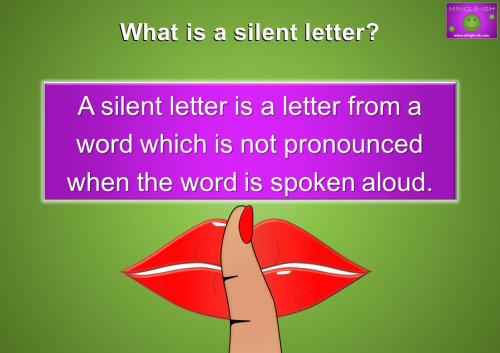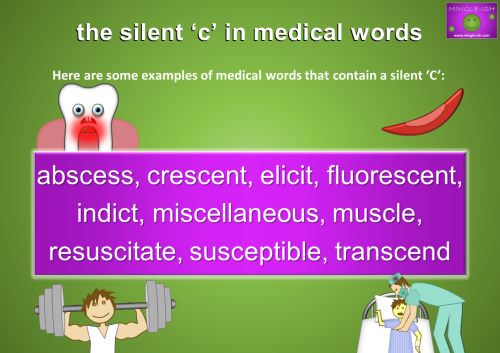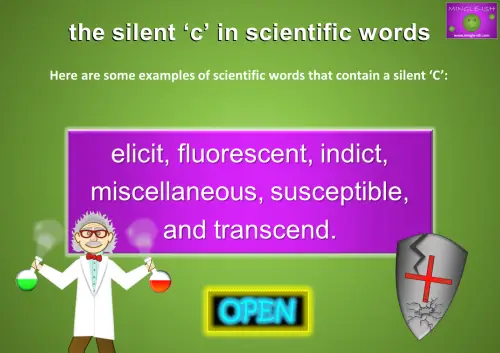Contents
words with silent c:
Welcome to our guide on the silent ‘c’! Ever wondered why some words have a ‘c’ that you don’t pronounce? We’ll explore those quirky words and the rules behind this silent letter. Are you ready? Let’s dive in…
introduction to silent letters in English
A silent letter is a letter from a word which is not pronounced when the word is spoken aloud. They still however appear in the written word. They can make spelling tricky but often provide clues about a word’s origin and meaning.
In this lesson. We’ll be specifically focusing on the silent ‘c’.
common words with a silent c
Have you ever wondered why some words have a silent ‘C’? It’s one of those quirky things about the English language that keeps us on our toes. Usually, the silent ‘C’ pops up in words with Latin or Greek origins. Here’s a quick list of the most common ones to help you spot these sneaky silent ‘C’s:
- abscess
- ascend
- conscious
- conscience
- crescent
- descent
- disciple
- fascinate
- fluorescent
- indict
- miscellaneous
- muscle
- obscene
- resuscitate
- scenario
- scene
- scent
- science
- scissors
- susceptible
- transcend
These words show how silent “C” often appears in scientific, medical, and academic terms, reflecting their Latin and Greek roots.
examples of the silent ‘c’ in medical words
Here are some examples of medical words that contain a silent “C”:
- abscess – a collection of pus that has built up within the tissue of the body.
- crescent – in anatomy, refers to crescent-shaped structures.
- elicit – used in medical testing and diagnosis to draw out responses or reactions.
- fluorescent – used in medical imaging and diagnostic tests.
- indict – to formally accuse of or charge with a serious crime (used in legal context, but originally from medical terminology).
- miscellaneous – though not exclusively medical, it can be used to refer to a collection of various medical conditions or elements.
- muscle – a tissue in the body that has the ability to contract, producing movement or maintaining the position of parts of the body.
- resuscitate – to revive someone from unconsciousness or apparent death.
- susceptible – refers to the likelihood of developing a disease or condition.
- transcend – In medical context, can refer to surpassing normal limits, such as in treatments or medical research.
examples of the silent ‘c’ in scientific words
- indict – in scientific contexts, it can relate to charges of scientific misconduct
- miscellaneous – in scientific contexts, it can refer to a diverse collection of elements or samples
- fluorescent – having the property of emitting visible light when exposed to ultraviolet light. commonly used in scientific research and diagnostics
- susceptible – in medical and scientific contexts, it often refers to susceptibility to diseases or conditions.
- elicit – in scientific research, it often refers to evoking responses during experiments.
- transcend – in scientific research, it can refer to surpassing existing theories or findings.
silent c rules
There are some rules you can learn and some patterns to look out for to help you decide if the ‘c’ is silent or not. Let’s take a look and the most common rules.
after an ‘s’
The ‘c’ is typically silent when it is preceded by an ‘s’, and followed by an ‘e’, or an ‘i’. For example:
- abscess
- ascend
- ascent
- crescent
- descend
- descent
- disciple
- fascinate
- fluorescent
- muscle
- obscene
- scene
- scent
- science
- scissors.




